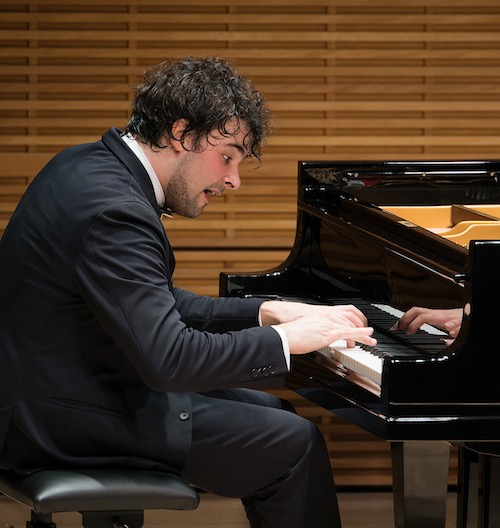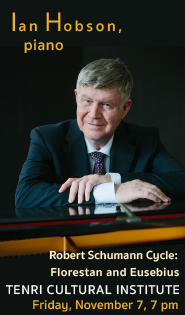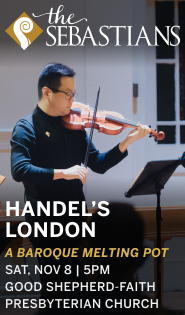Spanish pianist displays impressive artistry at Zankel Hall

At age 26, pianist Martín García García already has established an impressive career. Among other triumphs, in 2021 he won the Cleveland International Piano Competition and both Third Prize and a Special Award in Warsaw’s 2021 International Chopin Piano Competition.
On Wednesday, the Spanish pianist gave an ambitious, stirring recital at Zankel Hall, primarily featuring virtuosic masterworks from the Romantic era, in his Carnegie Hall debut.
Martín García García is an astonishing pianist of great musicality and indomitable technique. He transcended the multitudinous challenges presented in his program quite well, and demonstrated elegant phrasing throughout. One small complaint though is that he hums, and does so out of tune, while performing, which proved fitfully distracting.
The recital opened with Schubert’s Wanderer Fantasy in C Major, D.760. García García nicely managed the many shifts of musical character work’s four movements, from the bombastic Allegro con fuoco through the contrasting moods of the Largo. Although the Presto sounded somewhat insecure, he performed the concluding Allegro with great bravura confidence.
Similarly, García García’s performance of Chopin’s Sonata No. 3 in B Minor was played with deep understanding and panache. He was at his best in the brilliant Scherzo, and even more so in the warm, introspective Largo, one of Chopin’s most poignant musical testaments. The opening Allegro maestoso was commanding, and the Presto finale elegantly rendered.
The second half of the evening began with the world premiere of four excerpts from Abstractos, García García’s own 2022 work. In its entirety, this is an hour-long cycle of thirteen individual pieces, all ruminative meditations on the experience of the 2020 pandemic quarantine.
García García chose to begin with the cycle’s final piece, “Silent Postlude,” followed by numbers 7 (“Mal du Pays Bleu”), 6 (“Mal du Pays Gris”), and 11 (“Réminiscences d’une Berceuse”). The ordering of was curious, although each excerpt is a discreet piece, independent of the others.
The four works presented share many elements in common, not least the recurrence of chords or individual tones in a bell-like manner, sometimes sounding like distant church bells, sometimes sounding like clock tones. Overall, García García’s music is introspective, not at all virtuosic, and shows the influence of Impressionist piano music, particularly that of Erik Satie. He uses chords in a non-harmonic fashion, primarily for timbral color with something of a jazz inflection. Melodic material is often pentatonic or similar to snippets of plainchant. The music moves at its own pace, not in regular meter. The overall effect of Abstracos was attractive, if not entirely satisfying as a whole, at least in this order of these excerpts.
The concert concluded with the Sonata No. 1 in D Minor, Op. 28, of Rachmaninoff. =This dramatic and imposing work began life as a meditation on Goethe’s Faust, though the composer later dropped the programmatic aspect. The first movement’s dramatic shifts of character, were finely traversed by García García. He also proved musically versatile in Rachmaninov’s quasi-tragic Lento and brought great fire and virtuosity to the challenging final movement.
Two Chopin Waltzes, in C sharp minor, Op. 61, no. 2 and A flat Major, Op. 34, no. 1, were lovingly performed as encores.







Posted Oct 13, 2022 at 4:49 pm by Margarita Maria Anthoine
Thank you for sending out your thoughts. Was there and enjoyed every moment!!
Posted Oct 13, 2022 at 5:11 pm by Judith Norell
I would agree with your wonderful review. He is an astonishing pianist. I thought the encores were particularly lovely!
Posted Oct 15, 2022 at 2:36 pm by Renée Singer
What a wonderful Carngie Hall debut! Martin Garcia Garcia is a superb pianist! Thank you to Piano Cleveland for making this possible.